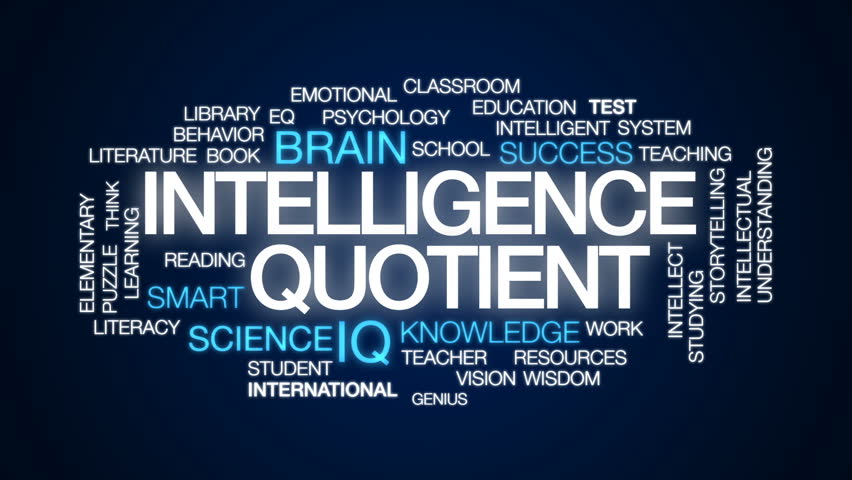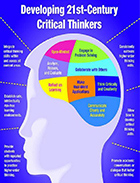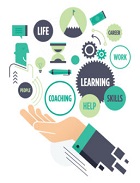Getting to know IQ and EQ
Getting to know IQ and EQ
 The measurement of intelligence often sparks a debate among educators and psychologists. Is it even measurable is what many ask? And if so, how is its measurement going to determine the effect of success and failure in the life of a student?
The measurement of intelligence often sparks a debate among educators and psychologists. Is it even measurable is what many ask? And if so, how is its measurement going to determine the effect of success and failure in the life of a student?Several theorists who studied the relevance of intelligence state that there exist not one but several kinds of intelligence where in one type is not necessarily better than the other.
But decades ago, educationalists came up with the Intelligence Quotient (IQ) as the most acceptable way to measure intelligence.
So, what is IQ?
IQ or Intelligence Quotient is the number that ranges from 0 to 200 (plus), and is the ratio that is derived by comparing the mental age of a person to their chronological age.
One of the most notable proponents of the IQ is Linda S. Gottfredson, a scientist and an educator who published a highly regarded article in a science magazine called the Scientific American.
She asserted that “Intelligences are measured by the single most effective predictor known of individual performance at school and on the job”.
Dr. Arthur Jensen, another leading theorist in the field of intelligence, created a chart that spells out the practical implication of various IQ scores.
For example, Jensen stated that people with a certain score would be selected to do a specific kind of job. He enlisted them as follows-
-
89-100 IQ scores could be employable as store clerks
-
111-120 IQ scores have the ability to become policemen and teachers
-
121-125 IQ scores have the ability to excel as professors and managers
-
125 or above scores high demonstrate skills necessary for eminent professors, executives, editors.
What is High IQ?
An average score which is over 100 is considered a high score. The model also suggests that a score of 140 and above is considered to be to be a genius, however, arguments state that high IQ levels vary from one profession to another.
In short, studies show that IQ cannot be quantified as a measurable quality that can be assessed using a formula but was one that is not restricted to formal knowledge alone.
What is EQ?
For most people, ‘EQ’ or Emotional Quotient is said to be more important than the Intelligent Quotient in attaining success in their lives. Emotional Quotient is said to help us understand and read people’s signals and react accordingly to the state of mood they are in.
Therefore, it is important for us to develop mature emotional intelligence skills to understand better, empathise and interact with people.
 Understanding the five categories of Emotional Quotient (Intelligence)
Understanding the five categories of Emotional Quotient (Intelligence)-
Self-awareness- is the ability to understand emotion as and when it happens. If one is able to evaluate their individual emotions, they will be able to control them. The two major elements of Emotional Quotient are-
-
One’s ability to recognise their own emotions and control them.
-
The sureness of one’s worth and capabilities.
-
Self-regulation- Though one will not be able to self-regulate the environment or the mood they experience, they can still be able to determine how long it lasts and adopt such techniques to alleviate negative emotions such as anger, anxiety and depression. Some of the techniques include recasting a situation into a positive light, meditation, long walks or prayers. Self-regulation involves-
-
Trustworthiness
-
Conscientiousness
-
Adaptability
-
Motivation
-
Motivation- To motivate oneself requires clear goals and a positive attitude. Although one may have the predisposition to adopt a positive or negative emotion, it is their motivation that helps them view matters in a positive light. Reframing negative emotions in a positive light helps a person achieve their goals. Motivation is made of-
-
Achievement drive- One’s constant driving force to improve or meet a standard of excellence.
-
Commitment- Aligning oneself with the goals of a group or an organisation.
-
Initiative- Reading yourself to act on opportunities
-
Optimism- Pursuing goals persistently despite obstacles and setbacks.
-
Empathy- It is the ability to recognise how people feel. The more skillful one is at discerning the feelings behind another person’s feelings, the better will they be able to control and send out similar feelings to them. An empathetic person will excel at-
-
Service Orientation- Anticipating, recognising and meeting the client's needs.
-
Determining other’s needs- to develop the factors they need to progress and strengthen their abilities.
-
Political awareness- Reading a group emotional current and power relationships.
-
Understanding others- Discerning the feelings behind the needs and wants of others.
-
 Social Skills- The need to develop good interpersonal skills is vital for the success of one's life and career. In today's of the well-connected world, it is important for one to develop the necessary ‘people’s skills’ to understand, emphasise and negotiate with others in a global economy. Some of the useful skills are-
Social Skills- The need to develop good interpersonal skills is vital for the success of one's life and career. In today's of the well-connected world, it is important for one to develop the necessary ‘people’s skills’ to understand, emphasise and negotiate with others in a global economy. Some of the useful skills are-
-
Influencing effective persuasion tactics
-
Communicating clearly
-
Initiating or managing a change
-
Inspiring and guiding a group of people
-
Understanding and resolving conflicts
-
Nurturing influential characteristics
What are the essential characteristics needed to succeed?
Psychologists agree that a high IQ is not the only factor needed by an individual to succeed. EQ or Emotional Quotient plays an equally important role in the development of an individual. In fact, studies state that IQ counts on roughly 10% (at best 25%); the rest depends on EQ or Emotional Quotient.























